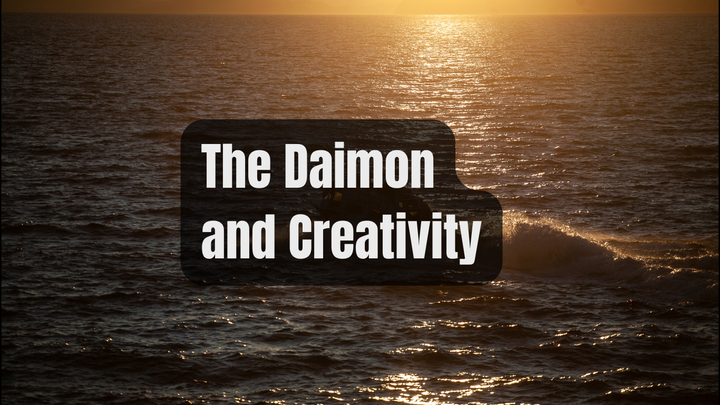Generative AI: The Dumbing Down of Knowledge and Identity
In this essay, I propose the idea that the use of generative AI systems without critical thought universalizes language in a negative way, leading to a dilution of knowledge. Less poetically, we all end up expressing ourselves like robots while knowing nothing.

Humanity is possibly undergoing the most fascinating linguistic evolution ever experienced. For the first time in human history, a specific type of expression has emerged that is instantly recognizable across any language, yet it is not produced by any particular culture, geographical area, business, or academic environment, but by Artificial Intelligence.
What is Generative AI, how does it work, and why is it relevant? To explain what generative AI is and how it functions, I will use the explanations provided by Google in the course Introduction to Generative AI, but simplified.
Generative AI is a subcategory of AI that allows for the creation of new types of content, such as text, images, and even audio, starting from existing data and using statistical models to generate new and relevant content.
Let's start with the basics
Artificial Intelligence (AI) is a technology that simulates human thinking, supported by algorithms. It contains several subdomains, such as Machine Learning (ML) and Deep Learning (DL). AI falls into three categories: Artificial General Intelligence (AGI) - where systems can perform any intellectual task that a human can do, Narrow AI (Siri - Apple, Alexa - Amazon, ChatGPT - OpenAI) - are designed to perform a specific task or operate within a limited domain, and Superintelligence - a hypothetical stage of artificial intelligence that far surpasses the cognitive abilities of humans in all relevant fields. We have not yet developed either AGI or Superintelligence.
AI is made up of Machine Learning (ML) and Deep Learning (DL). ML is a branch of AI that focuses on developing techniques that allow machines to learn from data without being explicitly programmed. ML uses algorithms that can learn from and make predictions based on data; the algorithms improve in performance as they are exposed to more data.
Deep Learning (DL) is a subcategory of ML that uses neural networks. These networks have many layers of artificial neurons mimicking the way the human brain is structured. DL includes several types of models, each specialized for different types of tasks, however, the most well-known and used are Generative Adversarial Networks (GAN) and Transformers.
Models based on Transformers are used for natural language processing tasks and require labeled data for training. These are especially used for specific tasks such as answering questions, automatic translation, or generating text based on certain prompts. Labeling in this context may include annotating texts with relevant information (such as conversation context, appropriate responses, etc.) to teach models to produce appropriate responses.
This introduction and explanation of how a generative model functions are essential in determining how it not only generates language but also how it develops (or does not) knowledge, and how this mode is similar to the way a human develops knowledge.
Do generative models have knowledge?
The distinction Gilbert Ryle makes between "knowing how" and "knowing that" in "Knowing How and Knowing That" provides an interesting perspective from which to consider the issue of knowledge possession in Transformer models. More jokingly or seriously, Transformer models only learn human language so we could communicate with them, because otherwise, they would very well know how to define a cat by themselves, just by analyzing many cats.

In Ryle's text, knowing how means having empirical, procedural knowledge, while knowing that refers to factual knowledge, propositional knowledge.
Generative AI, i.e., Transformer models (ChatGPT) - those that create art, compose music, and text, we can say that they operate in the area of "knowing how." These systems develop some form of procedural knowledge that allows them to generate new content that resembles the data they were trained with in terms of structure, style, and aesthetics. However, maintaining Ryle's perspective, AI does not learn as humans do. AI lacks the context and understanding of the facts and theories behind it. It does not truly understand the emotions behind what Picasso meant for Cubism, it only knows how to do certain things. Cold, robotic, executive. It uses patterns to recreate, yet in total emotional and contextual darkness. AI operates without the contextual, cultural, or historical understanding that usually accompanies human knowledge.
Moreover, we could say that this "knowing how" presented by AI is not pure knowledge and is rather an imitation of the procedural qualities of humans, yet devoid of the consciousness of understanding and intention. As these models follow programmed and adjusted algorithms, they do not interact with human concepts in a meaningful way, but only simulate the appearance of knowledge without that active act of cognition and without real understanding.
"Let’s delve into…"
Regular users of AI systems, such as ChatGPT, often react instantly to certain expressions. As mentioned earlier, Generative AI (ChatGPT) was trained to use typical human language formulations. This allows us to quickly identify a text written by AI.
AI Phrase Finder lists the most common expressions obsessively used by ChatGPT. Although the article lists the common phrases used in English, the same are used just as excessively in Romanian.
For example, ChatGPT has a kind of preference for the expression "It is important to mention that," used to draw attention to an essential point. Or, it starts articles with "In this article" or variations on the same theme, such as "complete article," "complete guide," "detailed blog post." Perhaps the most popular expression is "Master the art of…," a hit among social media channels and online educators. Millions of ChatGPT users turn to this tool to write "how-to" articles, from "how to make a cake" to "how to draw a cat," and the response will invariably be "Master the art of baking cakes
Conclusion? Not ours. His. Whether it is "In summary" or "In conclusion," ChatGPT leaves its mark.
Also, the expression "A testament to" is, let's say, quite popular in elaborating various situations, making correlations, adding a quite strong aesthetic note to everything it generates. And let's not forget "In the dynamic world of," another irresistibly attractive phrase for ChatGPT. The word "dynamic" is held in high esteem not only because it is used in this expression, but it seems to be one of ChatGPT's favorite adjectives. I dare say it would like to use it more often, if it could. And last but not least, we have the expressions "Let's explore," "Encapsulated," and "We embark on a journey," used so often that any article, social media post, or academic work containing them automatically receives the label of "written by AI."
If you start an open conversation with ChatGPT, it will surely use "Let's explore together the ever-changing world of ChatGPT's common expressions."
In conclusion, we will "Embark on a journey" when ChatGPT changes its tone to a conversational one, in which everything becomes a linguistic adventure, an aesthetic exploration of an elevated, colorful, and fluid vocabulary.
Although there is absolutely nothing wrong with these expressions (but also many others similar or from different registers), their overuse not only leads to saturation but also to a dilution of their understanding and meaning. As in art, the Mona Lisa is a work with a rich history and full of symbolism, but when it is replicated everywhere, from dollar sneakers to $7000 purses, its essence is diluted.
Walter Benjamin stated the same thing in "The Work of Art in the Age of Mechanical Reproduction" - how oversaturation dilutes essence, meaning, so it happens with ChatGPT, which, from a certain perspective, can also generate art, but what kind of art and what form of knowledge can something so diluted, supersaturated, overused have?
If we all end up using the same expressions to describe things as diverse as a philosophical academic paper, a medical study, a TikTok campaign, a LinkedIn post, or a news story, do we end up diluting knowledge through this superficiality of universal expression?
Reducing linguistic diversity
ChatGPT generates responses using models based on a finite set of training data, which can influence the standardization of language in daily communication. This process of standardization can reduce linguistic diversity and simplify the unique stylistic features of individuals or communities.
Language is a medium for generating and transmitting knowledge, not just a tool for communication. The way we articulate concepts can shape their knowledge. If AI homogenizes the use of language, it may lead to the homogenization of how we think and understand the world.
Spoiler A contemporary cultural example that presents this hypothesis in a way accessible to a wider audience is the film "Arrival". In "Arrival", a linguist is tasked with deciphering the language of an extraterrestrial species visiting Earth. As she learns to communicate using the language of one of the extraterrestrials, named Heptapod B, she begins to experience changes in her perception of time, illustrating the hypothesis that language can influence the way we think and perceive reality. The transformation she undergoes highlights the idea that the structure of a language facilitates communication and that it can reshape cognition. The film bases these concepts on the real works of linguists and on established linguistic theories, questioning whether and how a very different language could change the traditional human paradigms of thinking.

"Arrival" discusses the possibility that language can influence thinking and extends this idea by suggesting that a different language might even allow access to a new understanding of reality – in the film, this is manifested through the ability to perceive time in a non-linear way - more specifically, in seeing the future.
Philosophers such as Wittgenstein have highlighted how the limits of language are the same as the limits of a person's world, indicating that changes in language can alter or enhance our cognitive boundaries.
Therefore, as people increasingly rely on this limited and repetitive language of AI models, our language may become limited, thus leading to an epistemic homogenization, where diverse ways of knowing and expressing complex ideas are reduced.
Over time, this will lead to diluted knowledge, where the depth of understanding will be compromised by a lack of diversity and complexity in linguistic expression.

When we all speak the same and all know the same, Idiocracy will be a documentary.
A counterargument might be that, after all, AI enhances access to information and even encourages linguistic efficiency. By providing immediate answers to various questions, it democratizes access to information and furthermore, through these clear, concise, and easily understandable responses by anyone, AI simplifies communication and opens access to information for everyone. This, in theory, would lead to efficient communication, especially in a limited educational context.
This counterargument stands. However, only when we refer to access to education. I do not dispute, and indeed support, that ChatGPT helps to enhance education and support disadvantaged individuals or to familiarize anyone, on a superficial level, with various concepts. However, epistemologically and from the standpoint of true knowledge, this argument is irrelevant.
Superficial interactions with ChatGPT, taken as they are, pose a significant risk of oversimplification and loss of a critical approach when we absorb the information provided by such systems.
While these programs indeed facilitate and democratize access to information, the oversimplification of language and what it presents through language can come with a risky cost, that of reducing the richness of language, essential for expressing complex concepts.
Also, ChatGPT is trained for efficiency. The technical resources required to support millions of users are significant, and ChatGPT offers ultra-simplified responses not just in terms of the repetitiveness of certain phrases, but also in what it effectively supports. It manages to reduce quantum physics to a few paragraphs, the problem of universal income is explained in 3 sentences, and the second world war seems to have happened in 2 days.
Furthermore, returning to Wittgenstein, he asserts that the significance of something is dependent on context. Thus, the language generated by AI is devoid of the nuances that humans give to language when explaining or understanding certain things, and an AI being devoid of this context, can generate misunderstandings or superficiality in understanding. Wittgenstein's ideas about language suggest that expressions are linked to individual linguistic choices and the standardization of language will suppress expressions and limit the ability to express individuality.
We will lose authenticity and cultural identity. We will be standardized, robotized.
Loss of idiosyncratic language features
Regional dialects, sociolects, and personal linguistic idiosyncrasies are more than stylistic elements. They are specific ways through which we see and understand the world, in an authentic, unmediated way. These linguistic elements are connected with individual identity and cultural history, and each of them reveals unique concepts about how we interpret experiences.
When AI homogenizes language and neglects these elements, there is tremendous potential to diminish the diversity of epistemic perspectives. This loss can affect the way knowledge is expressed, interpreted, and transmitted, as precisely these linguistic details color knowledge and form a knowledge ecosystem.
If we analyze from the perspective of epistemic pluralism, a concept supported by philosophers such as W.V.O. Quine, in the work "Word and Object," where he supports the idea of linguistic relativism and how it reveals a unique vision of the world, this concept is intended to support that there are various valid ways through which we can know the world, ways that depend significantly on each language. If we reach a standardized language, a fear that, moreover, has been present since we have the idea of globalization, but much more pronounced now, once the LLM models have appeared, we might reach a limit of epistemic approaches, narrowing our collective understanding and ability to solve complex problems from various perspectives, and even precisely defining the problems in the absence of profound and diverse knowledge.
It could be argued that simplifying language through AI leads to a simplification of cognitive processes, which leads to efficient communication and a reduction of misunderstandings. If we use a common linguistic denominator, AI could support the decision-making process in a more efficient way and allow for easier dissemination of knowledge.
However, by simplifying language through the use of AI, we risk oversimplifying complex cultural and philosophical ideas. This reduction could lead to cognitive fragility, where future generations may lack the linguistic tools needed to navigate and conceptualize complex and nuanced realities. Moreover, the resilience offered by cognitive diversity is in tandem with ecological diversity in nature - it ensures that societies can adapt to challenges and come up with innovative solutions. When we reduce linguistic diversity, AI might diminish this resilience and could make societies less adaptable and robust intellectually.
Conclusion
In this essay, I have shown how AI systems like ChatGPT actually do not possess knowledge and how they use standardized, universalized language. I have argued how the use of these systems, in the absence of critical thinking, affects the way we understand and perceive the world, as limiting and standardizing language are directly correlated with limiting our understanding of the world. This leads to the loss of individuality, uniqueness, and authenticity.
These systems coexist with us and there are undeniable advantages in using them. However, the only weapon that remains is understanding the fact that, despite the impression, these systems are not human, do not possess knowledge, do not understand and, in fact, do not know anything.
Humanity, to live in harmony with these systems, which will become increasingly intelligent and capable of deception, can only work more and more at maintaining critical thinking and awareness that there are no shortcuts to knowledge, or at least not yet.



